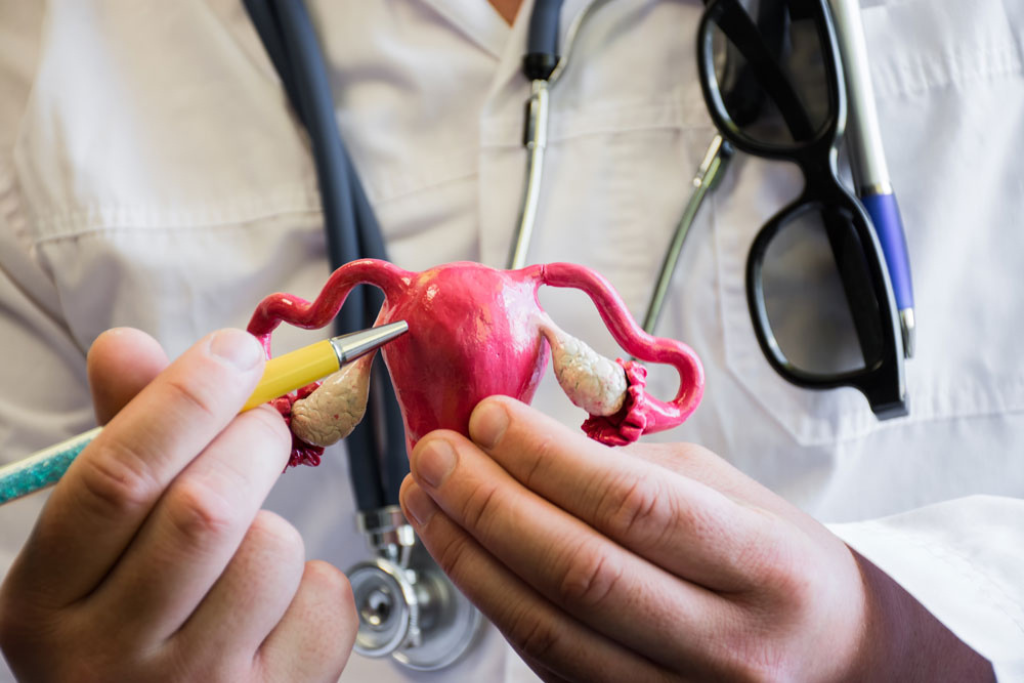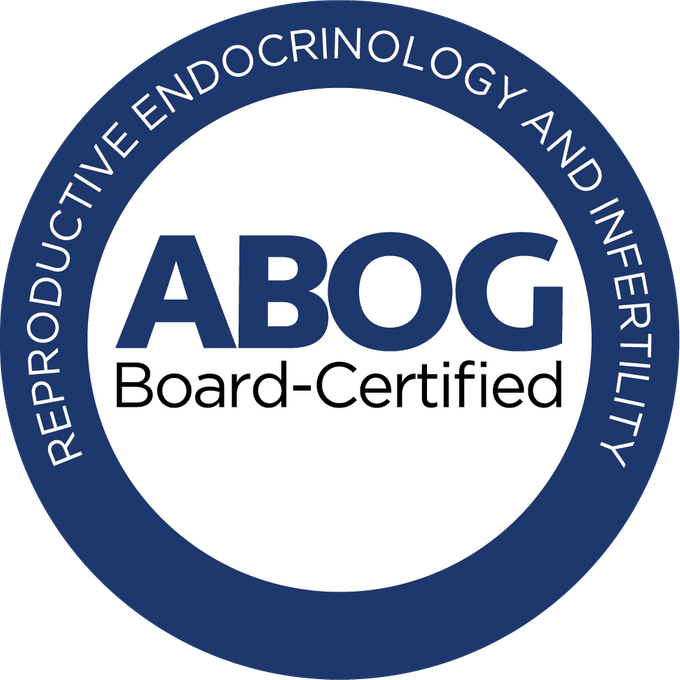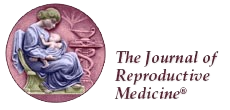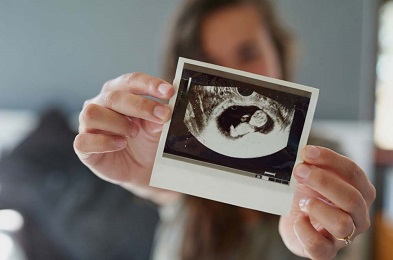PCOS Treatment

Polycystic ovary syndrome (PCOS) is one of the leading causes of infertility, affecting more than 10 million women around the world. With the help of Dr. Madanes and the expert staff at Midwest Fertility Center, women with PCOS can conceive healthy, happy babies.
If you live in the Chicago or Northwest Indiana area and are concerned about PCOS, you can pick up the phone or book online to schedule a consultation with Dr. Madanes today.

Women with PCOS face an increased risk of early pregnancy loss or miscarriage.





Ovulatory Dysfunction
One of the primary contributors to fertility issues in women with PCOS is irregular or absent ovulation. PCOS disrupts the normal hormonal balance, leading to anovulation (lack of ovulation) or irregular ovulation. Without regular ovulation, the chances of conceiving are significantly reduced.
Get Treatment for PCOS with Dr. Amos E. Madanes
Fertility medications such as clomiphene citrate or letrozole are used to induce ovulation in women with PCOS. These medications help regulate the menstrual cycle and increase the likelihood of ovulation. Monitoring through ultrasound and blood tests may be employed to track the response to these medications.
Hormonal Imbalances
Elevated levels of androgens (male hormones) in women with PCOS can disrupt the balance of reproductive hormones. This hormonal imbalance can interfere with the maturation of eggs in the ovaries and the regular development of the uterine lining, making it challenging for a fertilized egg to implant.
Get Treatment for PCOS with Dr. Amos E. Madanes
Hormonal medications, such as oral contraceptives or anti-androgen medications, can be prescribed to regulate hormonal levels. This can help restore a more favorable hormonal environment for reproductive processes. Additionally, lifestyle changes, including weight management and exercise, can positively impact hormonal balance.
Insulin Resistance
Many women with PCOS experience insulin resistance, where the body’s cells have a reduced response to insulin. Insulin resistance can contribute to metabolic imbalances and may impact the development and maturation of eggs.
Get Treatment for PCOS with Dr. Amos E. Madanes
Lifestyle modifications, including a balanced diet, regular exercise, and weight management, are key components in addressing insulin resistance. Medications such as metformin, can be prescribed to manage diabetes, and may also be prescribed to improve insulin sensitivity and enhance ovulatory function.
Your Future Family Depends on Working With The Best
The first ever pregnancy in the United States to result from a non-surgical intra-tubal insemination procedure was achieved by Dr. Amos E. Madanes in December 1989. The incredible results of his technique has been brining new hope to couples for the last three and a half decades.
Dr. Amos E. Madanes has developed several revolutionary assisted-reproduction procedures and has come to be known as an innovator and leader.
Stop living with the physical and emotional pain of PCOS
For decades Dr. Amos E. Madanes has helped hundreds of women successfully treat PCOS.
At Midwest Fertility Center we know that you don’t want to let PCOS stand the way of your life, or the life of your future child. In order to live the life that you want you need to be healthy. The problem is that PCOS disrupts your life in so many ways: irregular periods, body image issues related to weight, skin and hair, emotional impact, and fertility challenges which makes you feel unhealthy and self-conscious. At Midwest Fertility Center we believe that every woman should have the opportunity to be healthy and live their full life, including becoming a mother. We understand the medical appointments and treatments can be scary which is why we work hard to make your PCOS consultation as comfortable and friendly as possible. Here’s how we do it together:
- Schedule a PCOS Consultation
- Share with us your challanges and goals
- Let us set you on a plan to feel better and achieve your fertility goals.
So Schedule a PCOS Consultation today. And in the meantime, read other women’s experiences with treating PCOS so you can stop worrying and start living fully.

POCS Stories. See Yourself As Someone We Can Help.
Acne and Skin Issues
Story: Maria, a teenager with PCOS, shares her embarrassment and frustration with persistent acne. She describes the emotional toll of trying numerous skincare products without significant improvement. Maria often feels self-conscious in social settings, affecting her confidence and social interactions.
Does this sound like you? We help people like Maria every day. Schedule a consultation to get the information you need about diagnosing and treating PCOS.
Have You Had Challenges in Diagnosis and Treatment of PCOS?
Story: Jessica has long been frustrated by dealing with delayed diagnosis and ineffective treatments having had to visit multiple healthcare providers before receiving a proper diagnosis, leading to a sense of being dismissed or misunderstood.
Does this sound like you? We help people like Jessica every day. Schedule a consultation to get on tract and work with the best.
Emotional and Mental Health Struggles
Story: Rachel experiences mood swings, anxiety, and depression associated with PCOS. The hormonal fluctuations exacerbate her emotional well-being, making it challenging to maintain consistent mental health. Rachel seeks support from mental health professionals but faces the stigma around mental health in her community.
Does this sound like you? We help people like Rachel every day. Schedule a consultation to get the information you need about how PCOS may be impacting your mental health.

Menstrual Irregularities and Fertility Struggles
Story: Sarah, in her late twenties, shares the frustration of not knowing when her period will arrive. She struggles with irregular menstrual cycles, making it difficult to plan for important events. Sarah and her partner are also considering starting a family and she is anxious that her menstrual cycle issues might be linked to something that could cause fertility issues such as POCS.
Does this sound like you? We help people like Sarah every day. Schedule a consultation to get the information you need about POCS or other causes of period irregularities and period challenges.

POCS Related Hirsutism and Body Image Concerns
Story: Emily, a young woman with PCOS, recounts her daily battle with hirsutism (excess hair growth). She spends significant time and effort on hair removal methods, and the constant concern about her appearance takes a toll on her self-esteem. Emily often avoids social situations to conceal her condition.
Does this sound like you? We help people like Emily every day. Schedule a consultation to get the information you need about treating your POCS.

POCS related Weight Management and Insulin Resistance
Story: Jessica struggles with weight gain and insulin resistance associated with PCOS. Despite a healthy diet and regular exercise, losing weight is a constant challenge. She faces judgment and unsolicited advice from others who may not understand the complexities of PCOS and its impact on metabolism.
Does this sound like you? We help people like Jessica every day. Schedule a consultation to get the information you need about treating your POCS.
How is POCS diagnosed and treated with Dr. Amos E. Madanes?
Understanding PCOS and its potential impact on health is crucial and we take the time to educate you about the condition, its symptoms, and the available treatment options. This empowers you to make an informed decisions about your care. We believe in a collaborative relationship with our patience and work to establishing a collaborative and open relationship with healthcare providers is important. We want you to feel heard, understood, and actively involved in decisions about your care. Schedule a POCS consultation.
While POCS is a common condition, we believe that women living with PCOS deserve personalized and individualized treatment plans. PCOS can manifest differently in each person, and a one-size-fits-all approach may not be as effective. Schedule a POCS consultation.
PCOS is a multifaceted condition that can involve hormonal imbalances, metabolic issues, and fertility challenges. We work with you to design a comprehensive approach that addresses the various aspects of PCOS rather than focusing solely on one symptom. Schedule a POCS consultation.
We incorporate the following elements into our treatment of POCS:
Holistic Lifestyle Recommendations: Throughout POCS treatment we provide guidance on lifestyle changes, including dietary recommendations and exercise plans that can help manage weight, improve insulin sensitivity, and alleviate symptoms.
Mental Health Support: Addressing the emotional and mental health aspects of PCOS is crucial. Women may benefit from support and resources to cope with the psychological impact of the condition, including potential concerns about body image, self-esteem, and the emotional challenges of fertility issues.
For those trying to conceive, fertility support is often a priority. We support women seeking to optimizing fertility, addressing ovulatory issues, and exploring fertility treatment options if needed. Schedule a POCS consultation.
PCOS can cause a range of symptoms, including irregular periods, hirsutism, acne, and weight gain. While treating your POCS we help with effective management of these symptoms. This may include lifestyle modifications, medications to regulate hormones, and treatments for specific symptoms (e.g., anti-androgen medications for hirsutism). Schedule a POCS consultation.
POCS Treatment Journey
When considering how to diagnose and treat PCOS we know that cost and transparent pricing is an important factor, especially if you are on a fertility journey. If you have insurance, our team will also work with you and your insurance provider to ensure all fertility benefits are received.
PCOS Diagnosis
Get Answers Before You Get Pregnant
The information you need to make the most informed decision about your PCOS diagnosis and treatment.
- Diagnosing PCOS is critical.
- Heart disease, diabetes, obesity, sleep apnea, and endometrial cancer are all linked to PCOS
- Pregnant women with PCOS are at a higher risk for problems during pregnancy and delivery
- Hormone tests
- Sonogram to look at your ovaries
- Full metabolic syndrome assessment before confirming a diagnosis of PCOS
PCOS diagnosis & treatment
Comprensive PCOS Care
Treat your PCOS with personalized and supportive care.
Medications possibly including oral contraceptives to regulate menstrual cycles, control androgen levels, and manage symptoms.
Fertility Support
Mental Health Support
Nutritional Counseling:
Regular Follow-Up and Monitoring
PCOS Treatment for Pregnancy
Start with PCOS Treatment. End with Fertility.
If you have PCOS it does not mean you can not get pregnant. Women with PCOS who want to have children are first treated with medication to help with insulin resistance, followed by prescriptions, and finally IVF.
- Every case of PCOS is unique.
- Comprehensive Reproductive Endocrinology and Infertility (REI) Consultation
- Dr. Amos E. Madanes works with each patient to develop the best treatment plan for you.
Ask Dr. Amos E. Madanes Anything About PCOS
If you are worried you have PCOS or are already diagnosed with PCOS and considering treatment options, it is common to have lots of questions. The best way to get all your questions PCOS answered is to schedule a personalized consultation.
What can I expect during a PCOS consultation?
A Polycystic Ovary Syndrome (PCOS) consultation typically involves a comprehensive evaluation to gather information about your medical history, symptoms, and reproductive health. Here’s what you can generally expect during a PCOS consultation:
- Dr. Amos E. Madanes will ask about your menstrual history, including the regularity of your periods, any history of missed periods, and the presence of other menstrual symptoms.
- Details about symptoms associated with PCOS, such as hirsutism (excess hair growth), acne, hair loss, and any difficulties with weight management.
- Questions about your overall health, medical conditions, and medications you may be taking.
- A physical examination may include checking your blood pressure, body mass index (BMI), and signs of androgen excess (such as hirsutism and acne).
- Examination of the reproductive organs may be conducted, typically through a pelvic exam.
- Blood tests will likely be ordered to assess hormone levels. This may include measurements of androgens (such as testosterone), luteinizing hormone (LH), follicle-stimulating hormone (FSH), and anti-Müllerian hormone (AMH).
- Glucose and insulin levels may also be checked to evaluate for insulin resistance.
- A pelvic ultrasound may be performed to visualize the ovaries. This can help identify the presence of multiple small follicles (cysts) and provide additional information about the ovaries’ structure.
- You will have the opportunity to discuss your symptoms, concerns, and any challenges you may be facing, including issues related to fertility if applicable
- If you’re trying to conceive, your healthcare provider will inquire about your reproductive goals and any challenges you may have encountered.
- Discussion about your lifestyle, including diet, exercise habits, and stress levels. These factors can significantly impact PCOS symptoms.
- The healthcare provider will likely explain PCOS, its potential causes, and the range of symptoms associated with the condition.
- Information about the potential impact of PCOS on fertility, metabolic health, and long-term well-being may be discussed.
- Based on the information gathered, your healthcare provider will work with you to develop a personalized treatment plan. This may include lifestyle modifications, medications, and, if applicable, fertility interventions.
- A follow-up plan will be established to monitor your progress, adjust the treatment plan as needed, and address any ongoing concerns.
You are encouraged to ask questions and actively participate in the decision-making process. Collaboration between you and Dr. Amos E. Madanes is key to successful management of PCOS.
Polycystic Ovarian Syndrome
Polycystic Ovarian Syndrome (PCOS), clinically known as Stein-Leventhal syndrome, is a disorder affecting 5 to 10 percent of all women of reproductive age. Although the exact cause of PCOS remains unknown, the disorder leads to changes to the ovaries that result in higher levels of estrogen and testosterone in the body. This common hormonal condition is one of the leading causes of infertility.
At Midwest Fertility Center, we can help treat polycystic ovarian syndrome and the symptoms of PCOS. Our specialists provide a number of methods to assist couples affected by this syndrome. Contact our practice today to learn more.

Common Symptoms of Polycystic Ovarian Syndrome
The symptoms of PCOS and their severity can vary a great deal from patient to patient; however, some common symptoms include:
- Irregular, absent, or few menstrual cycles
- Infertility
- High blood pressure
- Elevated levels of insulin, resistance to insulin, or diabetes
- Multiple cysts on ovaries
- Enlarged ovaries
- Obesity concentrated in the midsection
- Excess facial or body hair
- Thinning hair on the scalp
- Acne or oily skin
Polycystic ovarian syndrome can be difficult to diagnose because not all patients with PCOS display the same symptoms. Some patients can be completely unaware that they have PCOS until they are unable to conceive. A significant percentage of women with PCOS struggle with their weight; however, there are also many thin women diagnosed with the disorder.
There are some women who do not have multiple cysts on their ovaries, yet they still have the hormonal irregularities associated with polycystic ovarian syndrome. PCOS testing can be done at any of our Chicago and Northwest Indiana centers. Contact us today to schedule a consultation with one of our doctors.
Treating Polycystic Ovarian Syndrome
Medical treatment for PCOS is different for each woman, depending on the symptoms and other factors. Typically, treatment is aimed at eliminating the symptoms of the disorder and restoring regular ovulation. Birth control pills and diabetes medication can help patients manage many PCOS symptoms. For women who wish to become pregnant, the first step of PCOS treatment is usually a course of fertility drugs aimed at stimulating ovulation.
Research has also shown that a change in diet and an increase in sustained, regular exercise are both beneficial in treating the condition. Midwest Fertility Center is proud to offer infertile couples a new program designed to improve the overall well-being of our patients through stress management and other methods. If these non-surgical approaches do not work, we can use certain surgical procedures to restore proper ovarian health.
Arrange an appointment with Midwest Fertility Center to discuss polycystic ovarian syndrome ( PCOS) with one of our specialists.
To learn more, call us at 1-800- 244-0212
FAQs
IVF Q & A by Amos E. Madanes, MD
Polycystic ovary syndrome (PCOS) disrupts your regular menstrual cycle and healthy ovulation, preventing eggs from developing or releasing as it should every month. As a result, ovarian cysts can result. The cysts may either go away on their own or require surgical removal.
PCOS primarily involves two hormones:
Insulin
According to current medical findings, PCOS is correlated with metabolic syndrome that lead to insulin resistance, resulting in the overproduction of insulin in the body. High levels of insulin may interfere with ovarian function, cause increased androgen secretion, and increase your risk for developing adult-onset diabetes.
Androgens
Androgens, primarily male hormones, are sometimes produced by females. Women with PCOS have more androgens than is average preventing ovulation and resulting in symptoms such as facial hair, acne, and irregular periods.
Diagnosing PCOS is critical. Heart disease, diabetes, obesity, sleep apnea, and endometrial cancer are all linked to PCOS. Pregnant women with PCOS are also at a higher risk for problems during pregnancy and delivery.
Dr. Madanes can order hormone tests and perform a sonogram to look at your ovaries, along with conducting a full metabolic syndrome assessment before confirming a diagnosis of PCOS.
If you have PCOS it does not mean you can not get pregnant. Women with PCOS who want to have children are first treated with medication to help with insulin resistance, followed by prescriptions, and finally IVF.
Every case of PCOS is unique. Dr. Madanes works with each patient to develop the best treatment plan available based on specific fertility issues. To discuss PCOS and how it relates to infertility, schedule an appointment with the Midwest Fertility Center by calling or using the convenient online request tool.
